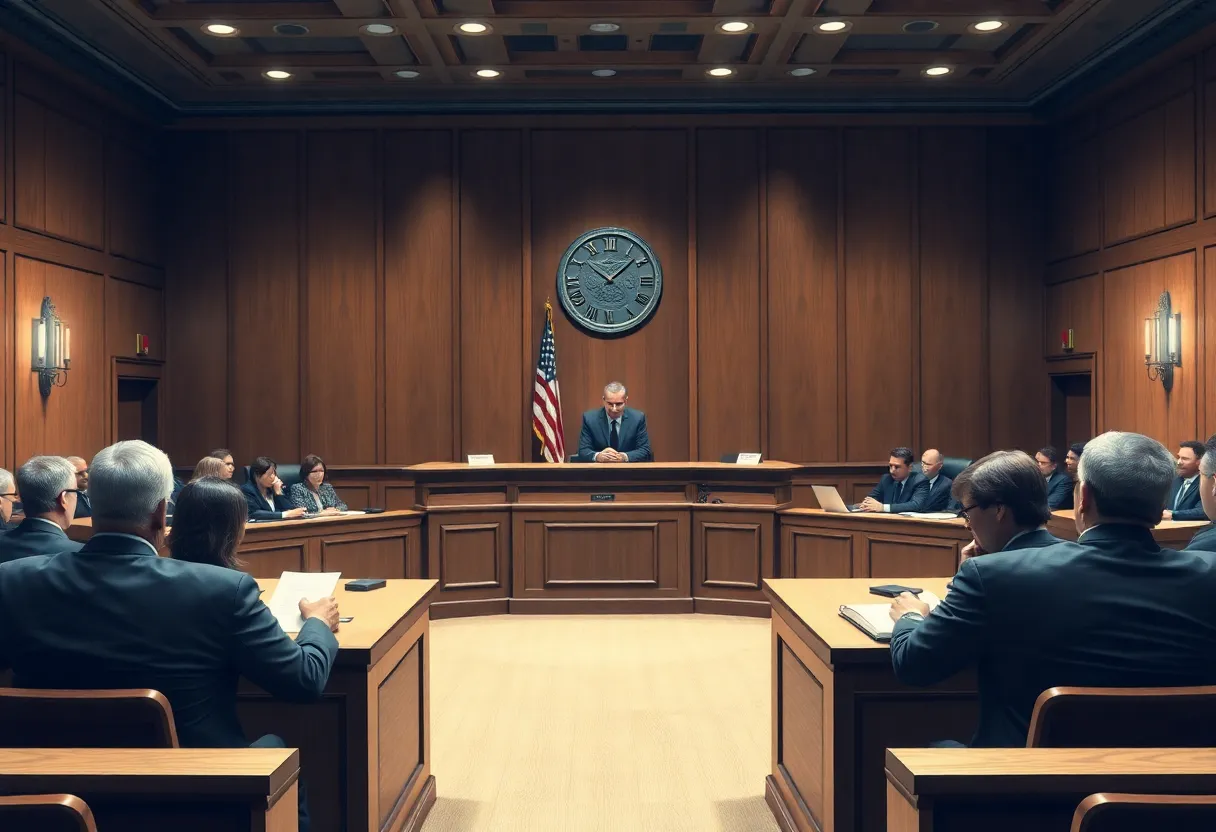News Summary
The Tennessee Court of Criminal Appeals has overturned the second-degree murder conviction of rapper William Britton, known as Lil Will. The court ruled that his rap lyrics were excessively prejudicial during the original trial, influencing the jury’s decision. Britton, accused of killing Kendall Ostine in 2020, has maintained his innocence, claiming self-defense. His attorney argues that this ruling may set a precedent protecting artistic expression in future legal cases, while the District Attorney is considering an appeal to the Tennessee Supreme Court.
Tennessee Court Takes Major Step in Overturning Rapper’s Murder Conviction
In a groundbreaking decision, the Tennessee Court of Criminal Appeals has overturned the conviction of rapper William Britton for second-degree murder, known on stage as Lil Will. This ruling has set the stage for a new trial, and the legal community is buzzing with implications for the future of artistic expression in the realm of hip-hop music.
Why Was the Conviction Overturned?
The court has sent Britton’s case back to a courtroom in Davidson County after concluding that his rap lyrics and music videos, included as evidence during his original trial, were unreasonably prejudicial. Judge Camille McMullen argued that such inflammatory material might have influenced the jury’s decision, raising serious questions about whether they might have convicted him based on his artistic expression rather than the actual circumstances surrounding the case.
Background on the Original Case
Britton faced charges of criminal homicide following the tragic shooting of 20-year-old Kendall Ostine in May 2020. The incident occurred near the intersection of Herman and Blank Streets. While surveillance videos depicted elements of the encounter, they were inconclusive regarding the specifics of what transpired. The rapper claimed he acted in self-defense, suggesting that Ostine had made movements that suggested he was reaching for a weapon. A knife was indeed discovered next to Ostine’s body, while Britton fired nine shots, contending that the initial shot was a cautionary warning.
Pushing Back Against Prejudice
Britton’s attorney, David Raybin, has been a staunch advocate for fairness in how artistic expression is treated in legal scenarios. He argued that including rap lyrics in court as evidence encroaches upon rights protected by the First Amendment. Raybin believes this significant verdict could prevent future cases from imposing punishment based solely on a musician’s creative work.
The District Attorney’s Response
However, the Davidson County District Attorney is not yet ready to give up. They are currently mulling an appeal to the Tennessee Supreme Court, which could ultimately determine whether Britton’s previous conviction will stand or if he will receive a new trial based on vastly different legal precedents.
The Role of Artistic Expression
In Britton’s original trial, the prosecution attempted to assert that his rap lyrics reflected a premeditated state of mind, characterizing him as someone obsessed with guns. The state’s assistant district attorney argued that this obsession was evident in his music. However, Britton’s defense countered that being a rapper and writing about gun culture should not be misconstrued as an authentic reflection of one’s intentions. After all, the jury ultimately opted for a conviction of second-degree murder instead of first-degree, which indicates they were not wholly convinced about premeditated intentions.
The Future of Britton’s Case
As the dust settles on this significant legal decision, it leaves many wondering what lies ahead for both William Britton and the broader implications for artists across the state. The outcome of any potential appeals from the District Attorney’s office and the Tennessee Attorney General remains to be seen, but one thing is clear: this ruling could reshape how art is perceived in courtrooms and protect the creative freedoms of musicians moving forward.
Stay tuned, as this story unfolds and continues to capture the attention of those invested in the intersection of music and law.
Deeper Dive: News & Info About This Topic
HERE Resources
Nashville Hosts Jelly Roll for Inspiring Inmate Concert
Additional Resources
- Tennessean: Nashville Homicide Conviction Overturned
- NewsChannel 5: Killer Rap Lyrics Convict
- Fox 13 Memphis: Young Dolph Murder Trial
- Google Search: Artistic Expression in Law
- Wikipedia: Freedom of Speech

Author: HERE Nashville
The NASHVILLE STAFF WRITER represents the experienced team at HERENashville.com, your go-to source for actionable local news and information in Nashville, Davidson County, and beyond. Specializing in "news you can use," we cover essential topics like product reviews for personal and business needs, local business directories, politics, real estate trends, neighborhood insights, and state news affecting the area—with deep expertise drawn from years of dedicated reporting and strong community input, including local press releases and business updates. We deliver top reporting on high-value events such as CMA Fest, Bonnaroo Music & Arts Festival, and Nashville Pride Festival. Our coverage extends to key organizations like the Nashville Area Chamber of Commerce and Nashville Health Care Council, plus leading businesses in healthcare, automotive, and technology that power the local economy such as HCA Healthcare, Bridgestone Americas, and Asurion. As part of the broader HERE network, including HEREBristol.com, HEREChattanooga.com, HEREKnoxville.com, and HEREMemphis.com, we provide comprehensive, credible insights into Tennessee's dynamic landscape.



